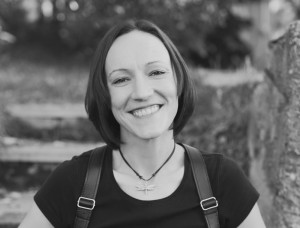Barb Fornssler
Biography:
Dr. Barbara Fornssler PhD is an Assistant Professor at the School of Public Health, University of Saskatchewan. She has been working in substance use research since 2011 and teaches the course ‘Studies in Addictions’ yearly for the School of Public Health. Dr. Fornssler is also the program director for the graduate certificate in substance use health and wellbeing at SPH. Dr. Fornssler works with the Canadian Research Initiative in Substance Matters (CRISM) Prairie Node, where she serves as the Knowledge Translation and Exchange Director. Her research areas include substance use, harm reduction, decriminalization, research-creation methods, intercultural communications, philosophies of technology, gender, and health. You can learn more about Dr. Fornssler’s work by visiting: https://sph.usask.ca/people/
Node Funded Project (December 2020)
Title: Perspectives, pathways and priorities of people with lived and living experience of substance use: Informing policies (P5)
Principal Investigator: Barb Fornssler, University of Saskatchewan
Co-investigators/collaborators:
Ms. Maryellen Gibson (Co-applicant), Mr. Jason Mercredi (Decision Maker), Dr. Peter Butt (Health Care Provider), Ms. Brandi Abele (PWLLE Advisor), and Ms. Marie Agioritis (PWLLE Family Advisor), Dr. Lori Hanson (Co-Principal Investigator), Lindsey Vold (Co-Investigator), Dr. James Dixon (Co-Investigator), and Jo-Ann Saddleback (Project guiding Elder)
Description:
CRISM Prairie Node Project Development funding will provide additional support for the patient-oriented research project titled Perspectives, pathways and priorities of people with lived and living experience of substance use: Informing policies (P5). This project was awarded a two-year Sprout grant of $180,000 in March 2020 as a joint initiative of the Saskatchewan Centre for Patient-Oriented Research (SCPOR) and the Saskatchewan Health Research Foundation (SHRF). The purpose of this study is to amplify and mobilize the voices of people with lived and living experience (PWLLE) of problematic substance use (PSU), across three socioeconomic groupings to develop and enhance pathways to care. This patient-oriented project embeds PWLLE across the research team and within the research process, including research partnership with Prairie Harm Reduction (formerly AIDS Saskatoon) and OUTSaskatoon. A knowledge translation plan has also been integrated into the research methodology and an arts-based dissemination project will be created for increased distribution and uptake of study findings. This will be achieved using patient-oriented and community-based participatory action research approach; thus, voices of PWLLE are embedded within all aspects of the project and PWLLE are involved in overseeing and decision-making related to the research.
Publications:
- P5 Project YXE. (2021). A Guide to Hope and Healing: Substance Use Services in Saskatchewan. Retrieved from https://p5projectyxe.ca/project-resources/
- Hanson, L., Fornssler, B. (2022). Decriminalization in the City of Saskatoon: Moving forward from evidence and lessons learned. Retrieved from https://p5projectyxe.ca/
project-outcomes/ decriminalization/ - Daniels, J. (2023). What is Indigenous harm reduction, treatment, and recovery. In Technical report for stakeholders – Perspectives, pathways, and priorities of people with lived and living experience of substance use: Informing policies (p.1-6). Retrieved from https://p5projectyxe.ca/
project-outcomes/technical- report/ - Coupland, M., Gibson, M., Fornssler, B. (2023). Technical report for stakeholders – Perspectives, pathways, and priorities of people with lived and living experience of substance use: Informing Policies. Retrieved from https://p5projectyxe.ca/
project-outcomes/technical- report/



